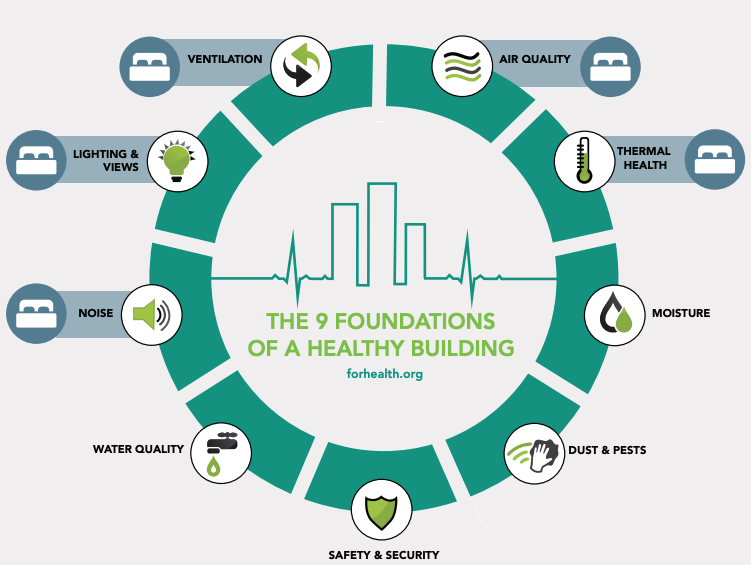A third of all the air you breathe in your life will be the air in one room…your bedroom.
You’re probably not surprised to learn that the typical person spends 90% of their time indoors. And we open our Homes for Health report pointing out that 65% of your time is spent in your home. But here’s something obvious yet shocking to think about – an entire 1/3 of your life is spent in just one room.
Think of everything you do to lead a healthy lifestyle. You may pay attention to what you eat, and how much you exercise. But have you ever seriously given much thought to the one place in the world where you spend 1/3 of your life? The main activity for the bedroom is, of course, sleep. So if you have given your bedroom some thought, you’ve probably gotten yourself a comfortable pillow and blanket. But it turns out that there are many other environmental factors that impact how well you sleep. Optimizing your bedroom conditions for sleep in advance will help you fall asleep, stay asleep, and sleep better. Remember: sleep is the cornerstone of good health.
This sounds obvious enough, but you do really need to set yourself up for sleep success by making your bedroom a zone of relaxation, not stimulation. That means removing things that activate the brain, like your T.V. or cell phone. So put away the electronics and don’t do work in the bedroom. Train your brain that this room is for sleep and relaxation.
As you’re winding down at night, block out any blue light in your room. This type of light stimulates your brain, even for a couple hours after you turn it off. Remove electronics that can emit blue light (or install software that adjusts the screen color), and swap out your light bulb for a tunable bulb that can dim the light intensity for a more sleep-inducing warm light. Once you’re asleep, give your body the best chance to stay asleep by using room darkening shades or sleep mask to block out the light.
We breathe about 11,000 liters of air every day; a third of all that air you breathe will be in your bedroom. Consider adding environmental control systems like portable air purifiers (or whole-house air purifiers) to capture airborne dust, in particular if you live close to a busy road or in an area with poor outdoor air pollution. When the outdoor air quality is particularly bad, consider keeping your windows closed. In cold, dry seasons consider using a portable humidifier – a higher moisture level is good for your skin, respiratory system, and it helps to decrease airborne influenza survival times.
As we fall asleep, our bodies begin to shed heat. Controlling room temperature and keeping your bedroom cool at night is one of the best determinants of sleep quality. Set a temperature target between 65-70°F to help keep you stay comfortable throughout the night. You can adjust your bedding and blankets by season to find your optimum comfort zone. During the warm summer nights, use a ceiling or portable fans and/or keep windows cracked open (whenever it’s safe) to help create air movement in the room.
Intermittent or unexpected noise is one of the key disrupters of sleep. Some find the white noise from portable air purifiers helpful to hide background noise, and there are other devices you can use to create relaxing background noise. Once you are ready to go to sleep, set your smartphone and other devices to silent mode. Consider sleeping with ear plugs if you have to.
